Changing roles
Associate Professor Dr. Bui Dinh Hoi - lecturer of the Faculty of Physics, University of Education ( Hue University) commented that artificial intelligence (AI) is dramatically changing the way we teach and learn. However, the role of the teacher is not lost, but is being "redefined".
If in the past, teachers mainly imparted knowledge, now they have become guides in the learning process, helping students think, choose and evaluate information in a world full of data. Teachers also nurture learning emotions, inspire passion, train personality and life values. AI can teach students “knowledge”, but only humans can teach “how to be human”.
In the context of AI being able to assist in lesson planning, testing, evaluating, and even teaching, Associate Professor Dr. Bui Dinh Hoi believes that the core value that cannot replace a teacher is humanity and the ability to connect with people. AI is very good at processing information, but does not have the empathy, compassion, or love that a teacher has for his students.
Only a teacher, with care and love for the profession, can grasp the strengths, weaknesses, as well as the circumstances and thoughts of each student he directly teaches. Besides, a teacher not only teaches knowledge but also inspires, arouses confidence, and helps students realize their own value. It can be said that AI helps students become better, but only a teacher can help students become better people.
Sharing the same view, Associate Professor Dr. Tran Thanh Nam - Vice Principal of the University of Education (Hanoi National University) affirmed that the AI era is an opportunity for the teaching profession to return to the core values of education. The role of teachers has shifted from traditional lecturing to "creating learning journeys", "guiding emotions" and "inspiring". AI has been changing the traditional "teacher - student" relationship to the "teacher - AI - student" model; requiring teachers to cooperate with AI, effectively utilizing the power of AI.
“The core values of a mechanical teacher can never be replaced, especially in the task of “teaching people”. Teachers cultivate personality, inspire and shape students through their own personality and example. Values such as ambition, dreams, ideals, love of homeland, or simply compassion and community cohesion, these are things that can only be passed on from person to person.
Teachers also take on the role of counselors and psychological support for students; providing empathy, listening, caring, orienting students on life values, training critical thinking and self-control... All of this shows that the core role of teachers cannot be replaced by AI or any technology," said Associate Professor Dr. Tran Thanh Nam.

Requirements for training innovation
The changing role of teachers inevitably requires changes in teacher training. MSc. Cao Hong Hue - senior lecturer of the Institute of Information Technology, Deputy Director of the Center for Communication and Learning Materials Production, Hanoi National University of Education 2, emphasized the shift from "transferring professional knowledge" to developing digital capacity and innovation capacity for students.
Circular No. 02/2025/TT-BGDDT promulgating the Digital Competency Framework for learners identifies 6 competency domains: Data and information exploitation; communication and cooperation in digital environment; digital content creation; digital safety; problem solving; application of artificial intelligence. These are the fundamental competencies that pedagogical students need to form and develop during the learning process.
To realize Circular No. 02/2025/TT-BGDDT, the Ministry of Education and Training issued two key guiding documents: Official Dispatch No. 3456/BGDDT-GDPT (for general education), Official Dispatch No. 2957/BGDDT-GDĐH (for higher education). The two documents demonstrate a consistent mindset: Digital capacity development must start from general education and be consolidated and enhanced in higher education, especially in teacher training colleges, where future teachers are trained.
According to Associate Professor Dr. Bui Dinh Hoi, teacher training needs to strongly shift from the model of "knowledge transfer" to "capacity development and technology adaptation". That means, teacher training schools must strengthen pedagogical practice associated with digital technology, from designing electronic lectures to managing online classrooms; closely connect with high schools, so that students can experience reality and clearly understand how to apply technology in teaching. More importantly, it is necessary to foster lifelong learning thinking for student teachers, because 21st century teachers must always be ready to relearn, update, and innovate themselves.
Sharing the skills and qualities that teachers need to be equipped with to master technology in professional practice, Associate Professor Dr. Bui Dinh Hoi emphasized three important groups of competencies. The first is digital technology competency, knowing how to use and apply AI effectively, being ethical and creative in teaching. The second is the ability to adapt and learn throughout life. Finally, and most importantly, is humanistic competency, the ability to understand, accompany and inspire students.
Note that users, including students, need to exploit the support of AI reasonably and avoid abuse. Some experts warn that AI can make people fall into the "average ability trap", because relying too much on AI can stunt the brain's thinking and creativity.
Expressing his views on this issue, Associate Professor Dr. Tran Thanh Nam raised a number of issues that teacher training institutions must fundamentally and continuously innovate.
First, build a new teacher competency framework and update the training program. It is necessary to clearly define the competencies that teachers in the AI era must have, thereby redesigning appropriate teacher training programs. UNESCO proposed an AI Competency Framework for Teachers with 15 core competencies in 5 areas (human-centered thinking, AI ethics, AI foundation and application knowledge, AI-integrated pedagogy, using AI for professional development). This is an important reference for countries to develop competency standards and teacher training programs in the digital age.
Vietnam has also had programs to enhance digital and AI capacity for teachers, and has built a roadmap to equip them with skills to integrate AI into teaching and education management. Pedagogical schools must quickly concretize the AI capacity framework, incorporate these new capacity requirements into output standards and training content, and avoid the situation where graduates lack the necessary skills of modern-day teachers.
Second, integrate technology and AI into the entire training process. Schools need to invest in technology infrastructure and modern equipment so that students and lecturers can directly access digital tools; organize training and foster AI capacity for both lecturers and students. AI applications should be integrated into courses and pedagogical activities - from lesson design, classroom management to student assessment - so that students can develop the skills to apply technology during the learning process.
Third, innovate teaching methods and educational thinking in teacher training schools; it is impossible to train 21st century teachers with outdated pedagogical methods. The program needs to strongly shift to a learner-centered educational philosophy, promote autonomous and creative learning; encourage personalized learning models, diverse experiences, and help teacher training students understand how to design teaching activities that are appropriate to the learners' abilities and needs.
The education sector's policy also emphasizes the development of smart education, personalized education, creative education and AI adaptation. These need to be reflected in the way teacher training colleges train teachers.
Fourth, integrate technology ethics education and ensure legal corridors. In addition to skills, pedagogical students must be equipped with an understanding of professional ethics in the context of digital technology. In terms of policy, the State needs to soon issue a legal framework for applying AI in education.
Fifth, develop an open and multi-stakeholder training ecosystem. Innovation in teacher training cannot be successful if schools operate alone. It is necessary to build an open ecosystem where schools are closely linked with the general school system, educational technology enterprises, international organizations and the community to exchange experiences, update trends and support each other.
Each teacher training institution should also proactively establish international cooperation relationships, participate in research networks and use open educational resources to continuously innovate itself.
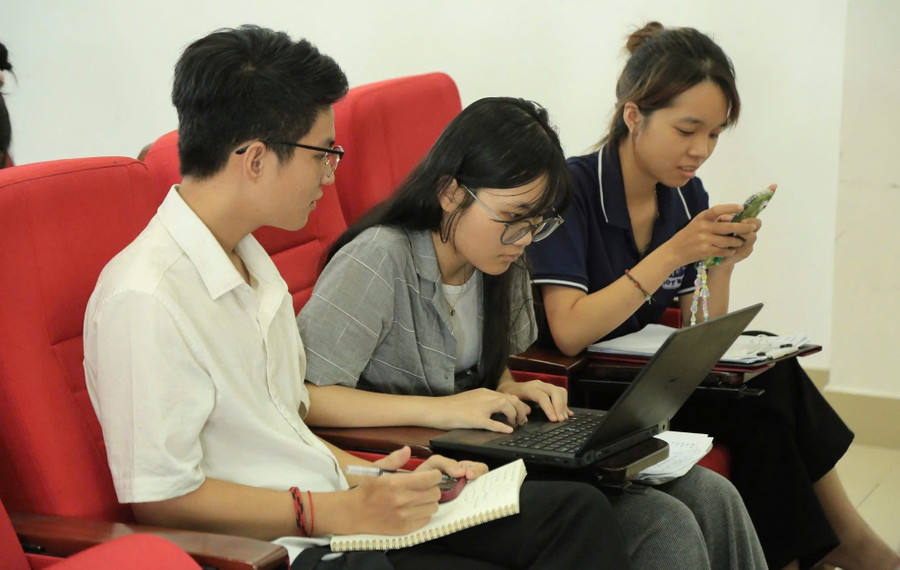
Proposing a roadmap for innovation for teacher training schools
Also offering solutions, based on international experience and UNESCO standards, Mr. Ngo Huy Tam - education expert, Master of Curriculum Design, University of Houston (USA) proposed a comprehensive and systematic innovation roadmap for teacher training schools with three main stages.
Phase 1 (2025 - 2027): Raising awareness and pilot testing. This phase focuses on creating a common awareness foundation. Pedagogical schools need to organize extensive training sessions and seminars for lecturers and students on basic concepts, opportunities and challenges of AI in education. At the same time, pilot projects are deployed in a few faculties and departments to test new tools and pedagogical methods.
Phase 2 (2028 - 2030): Comprehensive integration and program adaptation. This is a phase that requires systemic change. Pedagogical schools need to review and update the entire training program to integrate content on digital competencies and appropriate AI pedagogy. This is a mandatory step to train a generation of teachers who can meet the requirements of the 4.0 Industrial Revolution.
Phase 3 (after 2030): Innovation and leadership. At this stage, Vietnam's leading pedagogical schools must not only catch up but also lead innovation. It is necessary to build specialized training programs, grant certificates or even Master's degrees in AI in Education (AIED), similar to the model of NIE Singapore. At the same time, strongly promote educational science research projects, develop "Made in Vietnam" AI tools and platforms, specifically designed to suit the general education program and the cultural context of Vietnam.
“Innovation in teacher training cannot stop at training sessions or individual courses. The real challenge, and also the most urgent requirement, lies in comprehensively reforming the training program. Simply adding an elective course on “AI Applications for Teachers” is not enough.
Substantive innovation, as the Finnish experience suggests, requires integrating AI pedagogical capabilities into all subject areas. Future mathematics teachers will need to learn how to use adaptive learning platforms to personalize student practice. Future history teachers will need to learn how to use AI to create virtual museum tours or reenact historical events.
This requires every teacher trainer to become an expert in AI pedagogy in their field. This is a challenge, as well as a long-term strategic task for Vietnam’s higher education system,” said Mr. Ngo Huy Tam.
“Pedagogical colleges need to take the lead in implementing the Digital Competency Framework. Students not only learn about technology but also live in a digital learning environment, practice teaching on LMS and E-learning platforms, use AI in feedback, student assessment and design of digital learning materials. Only then, when they become teachers, will they truly have the capacity to lead students to develop digital competencies according to the requirements of the Ministry of Education and Training,” said Ms. Cao Hong Hue.
Source: https://giaoducthoidai.vn/vai-tro-nguoi-thay-trong-kien-tao-he-cong-dan-so-doi-moi-dao-tao-su-pham-thoi-dai-so-post755651.html




![[Photo] Chu Noodles - the essence of rice and sunshine](https://vphoto.vietnam.vn/thumb/1200x675/vietnam/resource/IMAGE/2025/11/11/1762846220477_ndo_tl_7-jpg.webp)
![[Photo] Prime Minister Pham Minh Chinh chairs a meeting on housing policy and the real estate market.](https://vphoto.vietnam.vn/thumb/1200x675/vietnam/resource/IMAGE/2025/11/11/1762838719858_dsc-2107-jpg.webp)


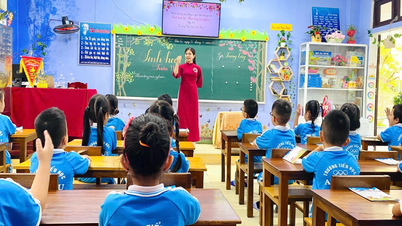


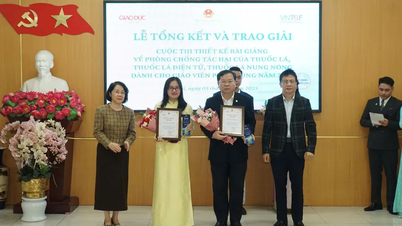


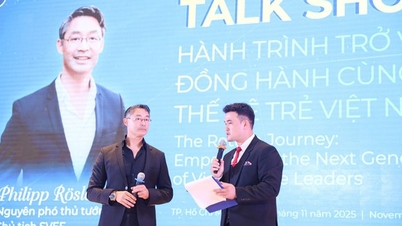

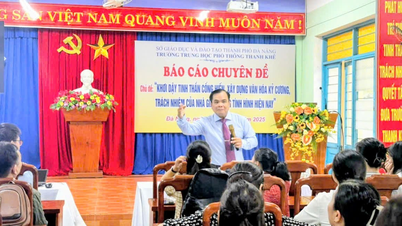




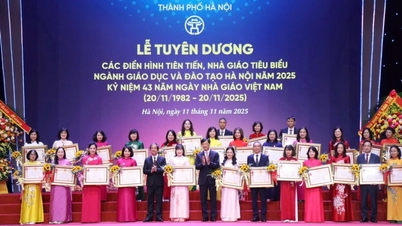














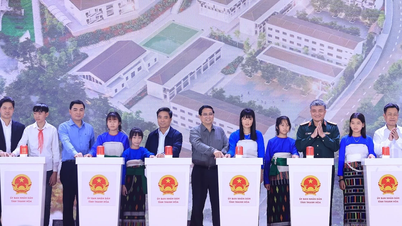



































































![Dong Nai OCOP transformation: [Article 4] Reaching national standard products](https://vphoto.vietnam.vn/thumb/402x226/vietnam/resource/IMAGE/2025/11/11/1762825820379_4702-cac-san-pham-trai-cay-chung-nhan-ocop-nongnghiep-174649.jpeg)


![Dong Nai OCOP transition: [Article 3] Linking tourism with OCOP product consumption](https://vphoto.vietnam.vn/thumb/402x226/vietnam/resource/IMAGE/2025/11/10/1762739199309_1324-2740-7_n-162543_981.jpeg)




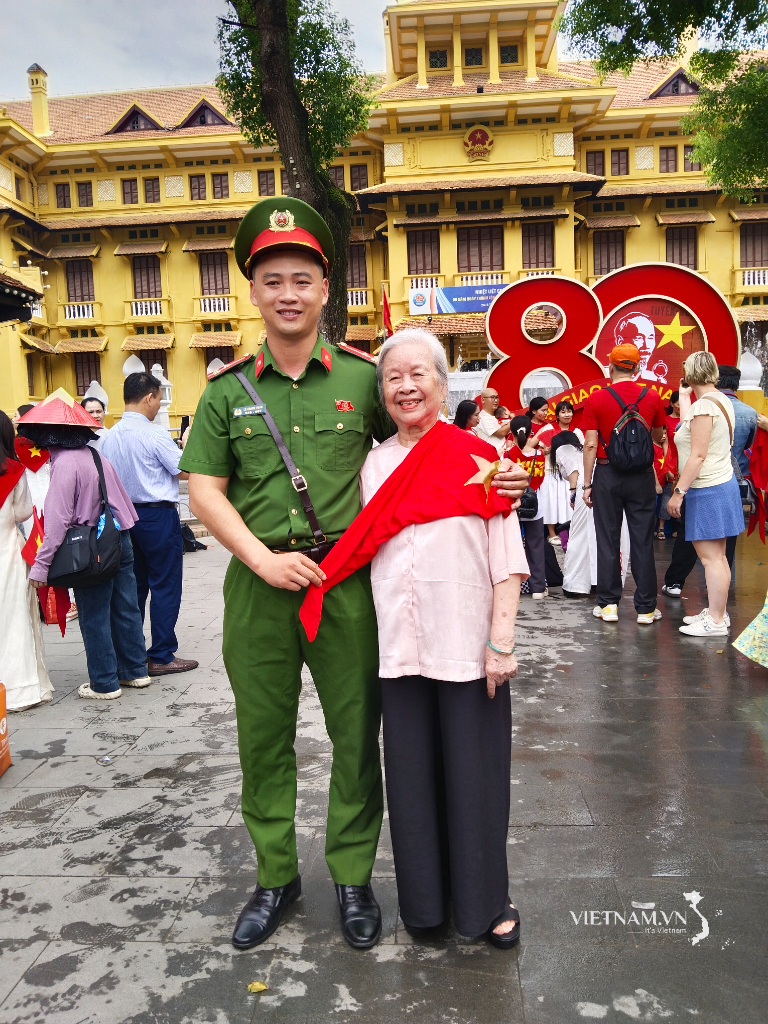

Comment (0)